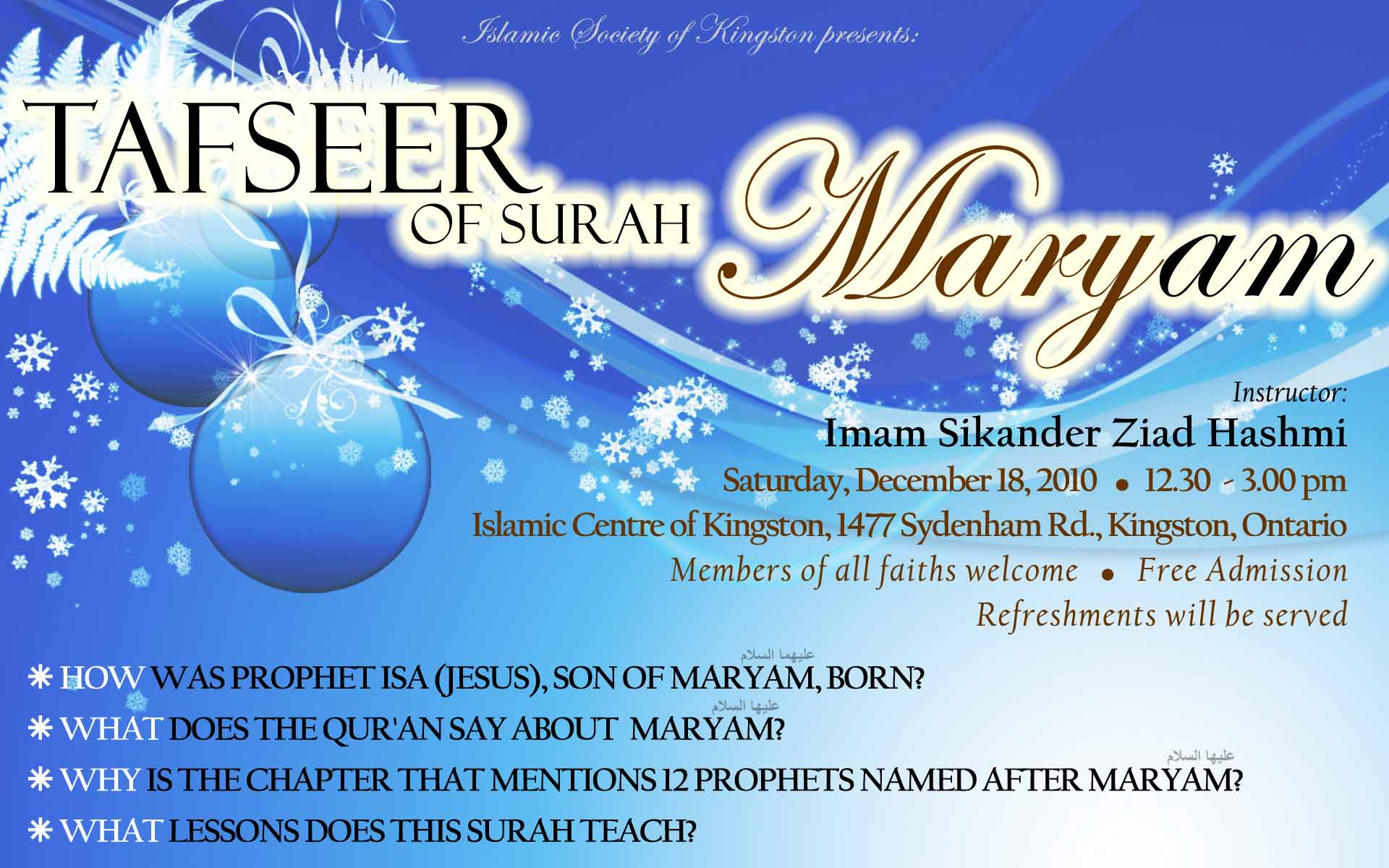
#SURAH MARYAM TAFSEER ENGLISH FREE#
There is no doubt, of course, that the one will make himself free from want from others by means of practicing the contents of this Surah. The only Surah, which has been entitled by the name of a woman in the Qur’an, is this very Surah, Surah Mary.įor the virtue of studying this Surah, it has been cited that whoever continues reciting this Surah (whenever he can), he will not die save that Allah will suffice him in life, wealth and children. It is recorded in Tafsir-i-Al-Mizan that, in the last few verses of Surah Maryam, Allah says that the purpose of revealing this Surah is to give ‘glad tidings and warnings’, and this aim has been followed in the beautiful form of the story of the prophets’ lives.Īllah has mentioned no woman in the Qur’an directly by her proper name except Mary, and the name ‘Mary’ occurs 34 times in the Qur’an. Similar to other Meccan Suras, the content of this Surah is mostly about matters concerning the Hereafter, the end of the evil-doers, the rewards of the good-doers, and part of the account of the lives of Zakariyya (Zachariah), Mary, Jesus, Yahya (John), Abraham, Ishmael and Idris (Enoch). It contains 98 verses which have been revealed in Mecca. Surah Maryam, as arranged in the Book, is the nineteenth Surah of the holy Quran. In The Name of Allah, The Beneficent, The Merciful Success comes from Allah, and Allah knows best.98 verses in 6 sections Introduction to the Surah Therefore, the verse is not a historical mistake, but rather it is in perfect agreement with the Semitic languages and ancient custom.

Thus, for instance, a man of the tribe of Banu Tamim was sometimes addressed as “son of Tamim” or “brother of Tamim.” Since Mary belonged to the priestly caste, and hence descended from Aaron, the brother of Moses, she was called a “sister of Aaron,” in the same way as her cousin Elizabeth, the wife of Zachariah, is spoken of in Luke 1:5 as one of “the daughters of Aaron.” In ancient Semitic usage, a person’s name was often linked with that of a renowned ancestor or founder of the tribal line. Muhammad Asad comments on the verse, saying: This is like saying to somebody from the Tamimi tribe: O brother of at-Tamim, or to somebody from the al-Mudari tribe: O brother of Mudar. Verily, they would name people with the names of prophets and righteous people who had gone before them. Mughira ibn Shu’ba reported: When I came to Najran, the Christian monks asked me, “You recite the verse: O sister of Aaron (19:28), whereas Moses was born long before Jesus by such-and-such years.” When I came back to the Messenger of Allah, peace and blessings be upon him, I asked him about it and he said: The Christians at the time of the Prophet objected to this verse on the grounds that it was meant literally, but the Prophet answered their question. And O myLord, I never remained unsuccessful after calling you.

He submitted, O My Lord, my bone is weakened and the flame of oldness appeared from the head. This is the record of that mercy of your Lord, which He showed to His bondman Zakaria.

O sister of Aaron, your father was not a man of evil, nor was your mother unchaste. Translation of Quran In English - Surah Maryam. This type of reference is common in ancient Semitic languages and in the Bible.

The Quran refers to Mary, upon her be peace, as the “sister of Aaron” in reference to her descent from the lineage of the Prophet Aaron, upon him be peace. In the name of Allah, the Beneficent, the Merciful


 0 kommentar(er)
0 kommentar(er)
